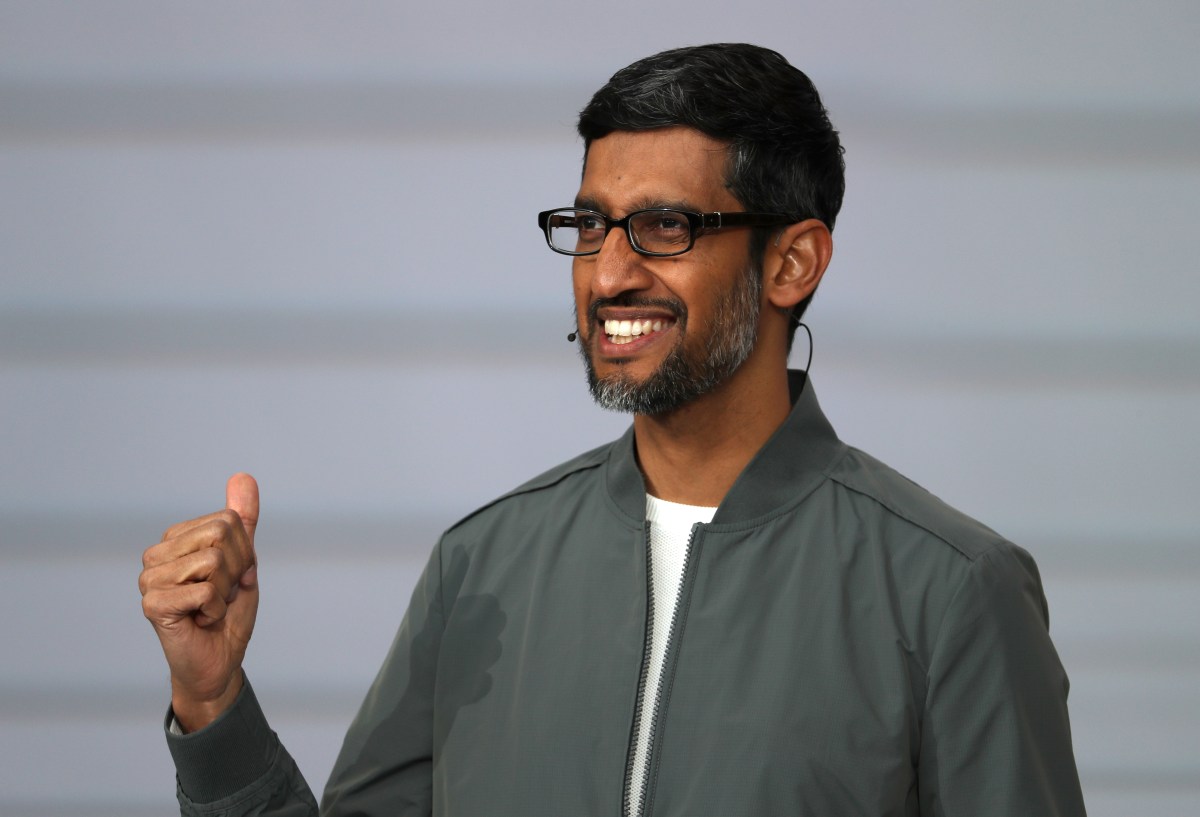Tech Leaders Praise Trump for Support of AI
Introduction
Top tech executives from Google, OpenAI, and other major tech companies recently attended an AI education event at the White House. The event was hosted by President Donald Trump and was followed by a dinner where the executives praised the president for his support of AI technology.
Key Details
The event was attended by some of the biggest names in the tech industry, including Sam Altman and Tim Cook. During the dinner, they applauded President Trump's efforts to advance AI technology in the United States. This support from top tech leaders is significant, as the US has been falling behind in the global race for AI dominance. With the growing importance of AI in various industries, it is crucial for the country to stay competitive.
Impact
The praise from these tech leaders not only shows their support for President Trump, but also their recognition of the importance of AI in the country's future. With the US government's backing, the tech industry can continue to innovate and develop groundbreaking AI technology. This can have a major impact on various industries, from healthcare to transportation, and can create new job opportunities and economic growth.
About the People Mentioned
Tim Cook
Tim Cook, born November 1, 1960, in Mobile or Robertsdale, Alabama, is an American business executive and the chief executive officer (CEO) of Apple Inc. since August 2011, succeeding co-founder Steve Jobs.[1][3][5] He holds a bachelor's degree in industrial engineering from Auburn University (1982) and an MBA from Duke University's Fuqua School of Business.[3][7] Cook began his career at IBM (1982-1994), followed by roles at Intelligent Electronics and Compaq (1994-1997).[3][6][7] He joined Apple in March 1998 as senior vice president of worldwide operations during a period of financial distress, where he streamlined the supply chain, slashing inventory from 30 days to 6 days and enabling profitability.[1][2][4] Promoted to executive vice president of worldwide sales and operations in 2002, he became chief operating officer (COO) in 2005, overseeing global sales, supply chain, and the Macintosh division while serving as interim CEO during Jobs's medical leaves.[1][3][4][5] As CEO, Cook has driven Apple's expansion beyond hardware, launching the Apple Watch (2015), AirPods (2016), and services like Apple Music, Apple TV+, Apple Pay, and iCloud subscription bundles.[1][2][7] He spearheaded the 2014 Beats acquisition, emphasized privacy as a core strategy, advanced environmental goals including carbon neutrality and recycled materials, and introduced proprietary Apple silicon chips in 2020 for greater production control.[1][2] Under his leadership, Apple achieved unprecedented growth, becoming the world's first trillion-dollar company.[8] Cook serves on Apple's board of directors and is recognized for operational expertise, philanthropy, social justice advocacy, and environmental commitment.[3][4] His methodical style has sustained innovation while broadening markets in regions like China and India.[2][3]
About the Organizations Mentioned
Google, a subsidiary of Alphabet Inc., is a global technology leader primarily known for its internet-related products and services, including its dominant search engine, advertising platforms, cloud computing, software, and hardware offerings. Founded in 1998 by Larry Page and Sergey Brin, Google has evolved from a simple search engine into a diversified tech giant with significant influence across multiple sectors[2][8]. The company’s core business revolves around Google Services, which includes Search, YouTube, Android, Chrome, Google Maps, Google Play, and advertising. Its advertising business remains the largest revenue driver, underpinning ambitious investments in emerging technologies such as artificial intelligence (AI) and cloud computing. Google Cloud, a major growth segment, offers infrastructure, platform services, and enterprise tools like Google Workspace, providing AI-powered solutions for data analytics, cybersecurity, and collaboration[2]. Google has consistently pioneered innovations in AI, demonstrated recently at Google I/O 2025, where it showcased advances in AI-powered search and personalization, emphasizing local discovery and smarter user experiences. AI integration also reshapes local business visibility through enhancements in the Google Business Profile, enabling businesses to better engage customers with AI-driven communication and search optimization[3][5][6]. Financially, Alphabet crossed a landmark $3 trillion market capitalization in September 2025, joining a select group of tech giants due to robust revenue growth driven by AI, resilient advertising, and expanding cloud services. This milestone reflects Google’s strategic balance between its dominant ads engine and scaling innovative bets[1]. Culturally, Google in 2025 maintains its commitment to innovation, openness, and user focus while adapting to business realities. It remains a top employer, known for fostering employee empowerment and evolving workplace policies to attract and retain talent, marking its maturity as a global tech leader with over 150,000 employees[4]. In summary, Google represents a transformative force in technology and business, blending AI-driven innovation, dominant market presence, and cultural adaptability to shap
OpenAI
OpenAI is a leading artificial intelligence research and deployment company founded in 2015 with the mission to ensure that artificial general intelligence (AGI)—AI systems generally smarter than humans—benefits all of humanity[1][2]. Initially established as a nonprofit, OpenAI’s goal has always been to advance safe and broadly beneficial AI technologies. In 2019, OpenAI created a for-profit subsidiary to scale its research and deployment efforts while keeping mission-aligned governance. As of October 2025, this structure evolved into the OpenAI Foundation (nonprofit) governing the OpenAI Group, a public benefit corporation (PBC). This unique corporate form legally binds OpenAI Group to prioritize its mission alongside commercial success, ensuring broader stakeholder interests are considered[1]. The Foundation holds equity in the Group, aligning incentives for long-term impact and growth. Microsoft owns approximately 27% of OpenAI Group, with employees and investors holding the rest[1]. OpenAI is renowned for pioneering breakthroughs in large language models and AI applications. Its products like ChatGPT revolutionized human-computer interaction by enabling natural language conversations and task automation. OpenAI continuously innovates by integrating AI into business tools—for example, its recent launch of “company knowledge” in ChatGPT Business harnesses AI to aggregate and analyze internal company data from apps like Slack, Google Drive, and GitHub, enhancing workplace productivity and decision-making[3]. Key achievements include advancing AI safety research, reducing hallucinations in language models, and expanding AI’s accessibility through products like Codex and ChatGPT Atlas (a browser with ChatGPT integration)[2]. OpenAI’s balanced governance model and cutting-edge research position it uniquely at the intersection of technology innovation and ethical AI development, making it a focal point in business and technology news globally.













